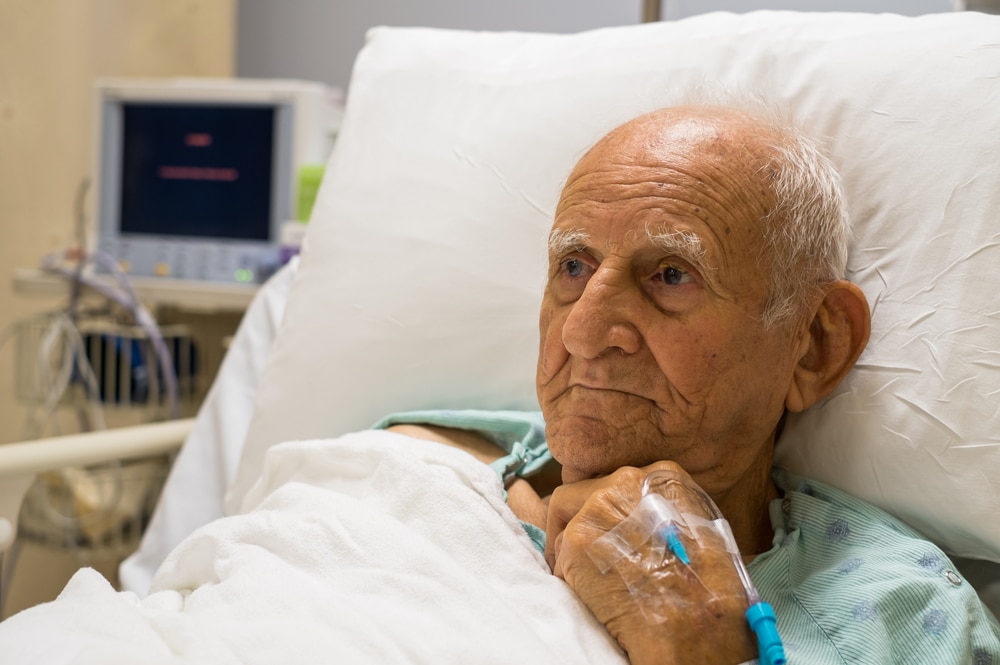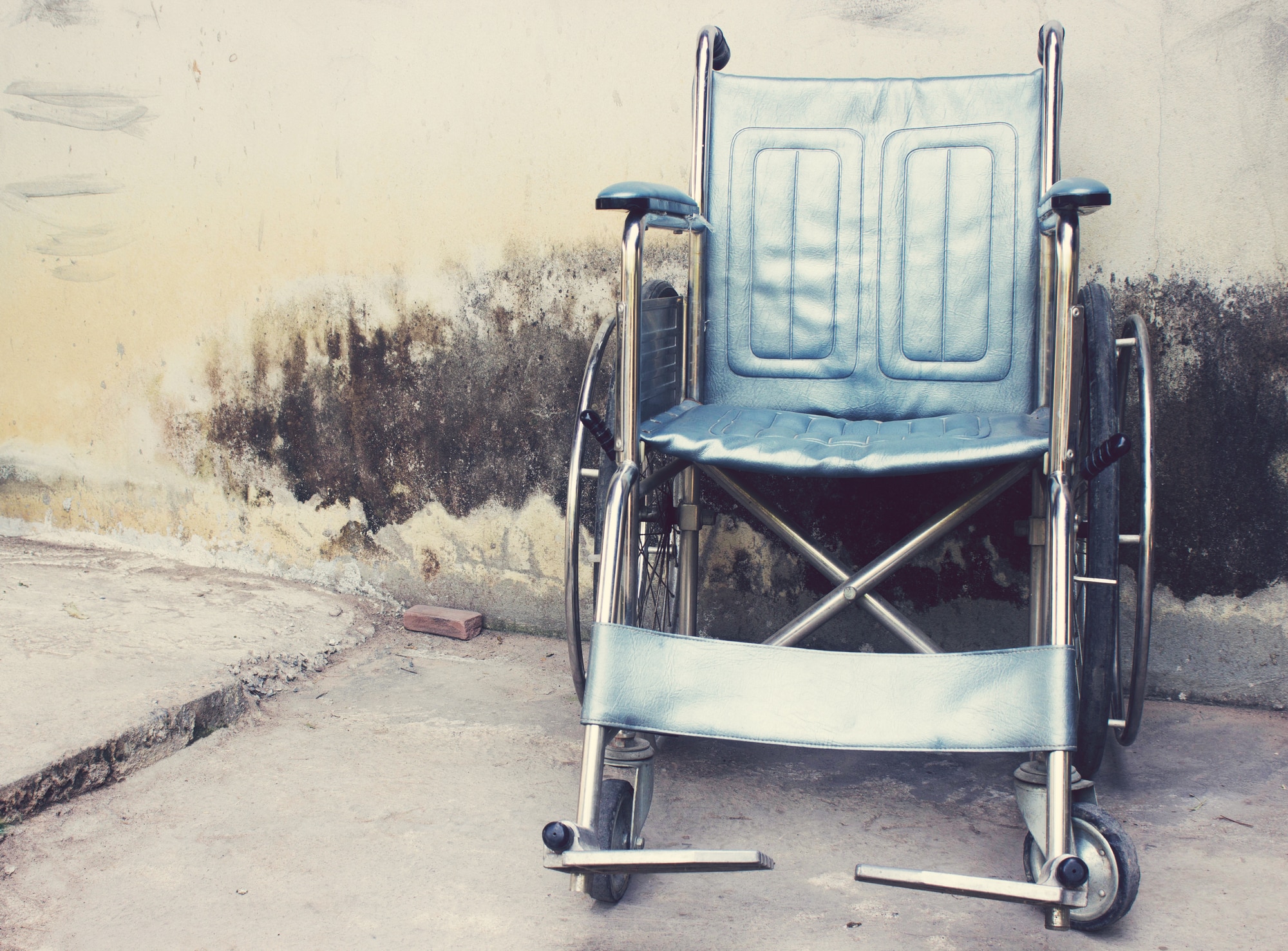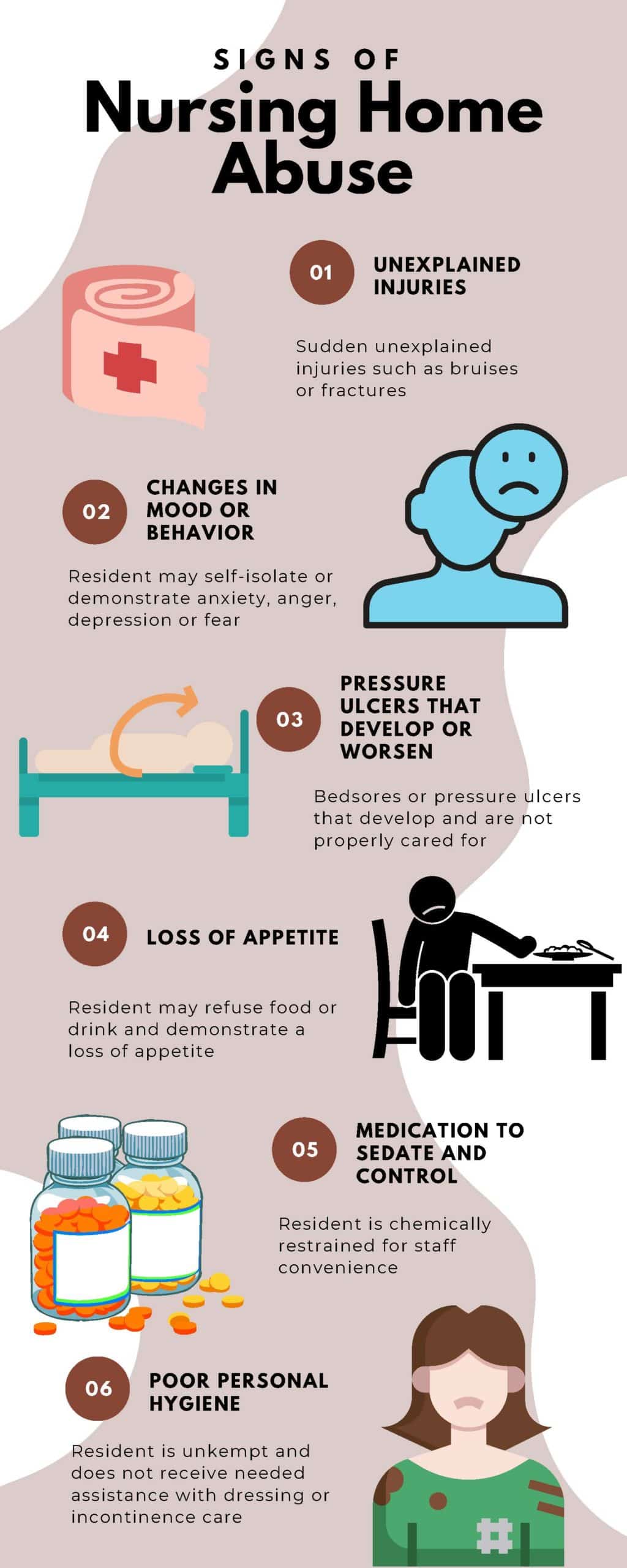 Nursing Home Malnutrition Lawyers
Nursing Home Malnutrition LawyersNursing home abuse is often depicted as broken bones or bruises from physical abuse. However, malnutrition and dehydration are also common signs of nursing home abuse and neglect. Nursing homes or assisted living communities are tasked with ensuring that residents in their care receive adequate nutrition and fluids for wellness. Nursing home abuse lawyers Philadelphia PA trusts at the Wieand Law Firm are committed to protecting the legal rights of nursing home residents who have sustained harm from malnutrition or dehydration.
Proper nutrition is critical for the body and its organs to work effectively. Malnutrition occurs when the body does not receive the necessary minerals and nutrients to maintain healthy bodily functioning. Nursing home residents often have medical conditions that require a greater amount of nutrients because they use up energy faster.
Physical signs of malnutrition can include:
Not all cases of malnutrition are caused by neglect or abuse. However, if you have seen these signs of malnutrition and suspect neglect, contact nursing home abuse lawyers Philadelphia PA relies on for these cases. Our attorneys can help procure the medical record and determine if neglect was the cause of your loved one’s malnutrition.
Yes. Malnutrition can be a sign of nursing home neglect or abuse. Nursing home abuse lawyers Philadelphia PA counts on have litigated cases in which understaffed facilities failed to provide and monitor residents for adequate nutrition. Nurses and aides who have too many patients to monitor can fail to provide the support that fragile elders need to maintain proper nutrition.
If your loved one suffered harm due to negligence, contact the Nursing home abuse lawyers Philadelphia PA at the Wieand Law firm for a free consultation.
 What is Dehydration?
What is Dehydration?Dehydration occurs when the body loses more fluid than it takes in. As a result, the body lacks enough water and fluids to carry out its normal functions. Dehydration can be an acute or chronic issue. Elderly patients are at higher risk for chronic dehydration due to reduced sensitivity to thirst, a decreased ability to concentrate urine, and generally lower fluid intake.
Any resident can suffer from dehydration. However, some residents have risk factors that put them at greater risk. It’s important for nursing facilities to identify these risks and develop a plan of care to help at-risk residents achieve their hydration needs.
Residents at higher risk for dehydration include:
It’s incumbent on nursing homes to recognize residents at risk for dehydration and take action to meet their hydration needs. If you believe that a nursing home was negligent and your loved one suffered from dehydration and serious injury as a result, contact the nursing home abuse lawyers Philadelphia PA relies on at the Wieand Law Firm for a free case review and evaluation.
Yes, dehydration can be a sign of nursing home neglect. Many residents are unable to independently procure and consume water without staff assistance. When staff members fail to provide enough water to residents to meet their dietary needs, it can be considered neglect. Understaffing is a primary driver of dehydration in nursing home resident.
Dehydration can cause severe medical problems that include life-threatening complications such as kidney failure, brain swelling, urinary tract infections (UTIs), and weight loss. Lack of proper nutrition and hydration can also result in skin breakdown, known as pressure ulcers.
If your loved one suffered serious harm, such as the above complications, due to malnutrition or dehydrations, reach out to nursing home abuse lawyers Philadelphia PA at the Wieand Law Firm for legal counsel. Our malnutrition lawyers can help you recover damages for the medical expenses and emotional distress that your loved one suffered due to negligent care.
Yes, nursing homes are required prevent and treat malnutrition and dehydration. Federal regulations outlined in the State Operations Manual §483.25(g) require that nursing homes to provide nutritional and hydration care to each resident consistent with their care needs. This includes evaluating each resident for nutritional concerns and providing a therapeutic diet for their clinical conditions and preferences. According to nursing home abuse lawyers Philadelphia trusts, some facilities fail to provide these services. As a result, residents experience harm from malnutrition and dehydration and experience health declines.
 Feeding Tube Malpractice
Feeding Tube MalpracticeSome residents with intake and nutritional support needs may benefit from insertion of a feeding tube. Percutaneous endoscopic gastrostomy (PEG) tubes are sometimes considered for nursing home residents struggling with nutrition. A PEG tube provides nutrition through a tube that going directly through the abdominal wall and into the stomach.
Nursing home staff are required to properly monitor and care for residents with feeding tubes. Nursing home staff must follow physician orders for flushing a feeding tube to prevent clogging. They are also responsible to identify a feeding tube problem and take steps to correct it. Signs of a problem with a feeding tube include vomiting, abdominal distension, excessive residuals, or pain around the tube site.
Failing to properly maintain feeding tubes can result in malnutrition or wrongful death. Nursing home abuse lawyers Philadelphia PA counts on represents victims who suffered harm from feeding tube malpractice.
Nursing home patients are some of the most vulnerable members of society. Sadly, in many cases, nursing home owners and operators intentionally understaff these facilities in order to achieve a higher profit margin. Labor is typically the highest operating expense for nursing homes; by reducing staffing, the nursing home can achieve the financial results they desire. While nursing home investors benefit, the residents living in these facilities suffer from lack of care and support.
High workloads make it nearly impossible for nursing staff to follow a resident’s comprehensive care of care. Additionally, staff members who are overworked and exhausted can suffer from stress and frustration that results in resident abuse or neglect.
Nursing homes ae liable to provide a certain standard of care. When this standard isn’t met and someone is injured, they may have a legal case for nursing home negligence. To prove nursing home negligence, our malnutrition lawyers must be able to demonstrate that:
In most cases in which a nursing home resident is the injured victim, the case basically comes down to proving that the nursing home failed to uphold the standard of care and that breach resulted in the resident’s injury.
Negligence can be an act, but it is also the failure to act. While some injuries happen because of a specific act, other injuries happen when the staff fail to do something that a reasonable professional in their field would do. For example, if a reasonable dietician would contact the physician regarding a significant weight loss, and the facility’s dietician failed to make that notification, they may be liable for negligence.
Every nursing home neglect case for malnutrition has a unique set of circumstances and damages. Typically, the more damages that were sustained, the higher you can anticipate in a settlement amount. For example, if a nursing home neglected to care for your loved one’s PEG tube that required admission to a hospital for care, you are likely to see a higher settlement amount.
Your sustained economic damages have a significant influence on the value of your case. Economic damages include the medical expenses, lost wages, and low of future earnings that were sustained from the negligence These expenses may include:
Additionally, non-economic damages help compensate you for non-monetary damages that your loved one sustained from the negligence. These damages can include:
Punitive damages are aimed at punishing the defendant for wanton or reckless behavior and determine future bad behavior. These damages can be added to the value of your case in certain situations. The qualified nursing home abuse lawyers Philadelphia PA trusts are committed to arguing for all damages, including punitive damages, when appropriate.
Nursing homes and assisted living facilities are expected to provide nutritional services that meet the standard of care for their residents. If this standard of care is neglected, the victim or their family has the right to file a malnutrition lawsuit for the damages they sustained.
 Nursing Home Malnutrition Lawyers at the Wieand Law Firm
Nursing Home Malnutrition Lawyers at the Wieand Law FirmWhen someone you love has fallen victim to nursing home neglect in Philadelphia, one of your first steps should be to contact an attorney for guidance. At Wieand Law Firm, we pride ourselves on our ability to help our clients obtain the outcomes that they deserve. We are committed to assisting our clients in preparing their case and reaching a resolution as quickly as possible. By taking advantage of the complimentary consultation provided by nursing home abuse lawyers Philadelphia PA trusts at Wieand Law, you can rest assured that you are in our very capable hands.
Wieand Law Firm is committed to helping our clients achieve outcomes that can help them not only feel as though justice has been served, but help them financially recover after an accident that has caused them damages. Not only will our nursing home abuser lawyer in Philadelphia PA take the time to carefully prepare your case with key evidence, we will be ready should your case require litigation.
We know that during your time of need you and your loved one are probably reliant upon the compensation you are entitled to. Because of this, we will work tirelessly to negotiate the possible outcome for you. Working with Wieand Law Firm can give you peace of mind in knowing that you have obtained a Philadelphia malnutrition lawyer who is respected in the community by both our peers and clients.
Put our skills to the test by contacting Wieand Law Firm to schedule a complimentary consultation with a valued member of our legal team. We know that you will be facing a difficult road, one that will leave you with many questions. We know you are looking for a committed and skilled nursing home neglect attorney in the Philadelphia area.
Call us for an initial consultation. This conversation will:
You deserve a nursing home abuse lawyer Philadelphia PA trusts. At Wieand Law Firm, our attorneys are dedicated to helping clients obtain the possible outcome. Call our office today to schedule your complimentary consultation with us. We are prepared to review your case with you and help map out the course of action.
During this trying time, you need experienced and tenacious nursing home malnutrition lawyers on your side, ready to fight for the rights of your elderly loved ones. For a difference you can rely on, Wieand Law Firm, LLC is ready to serve you.
Contact our Philadelphia nursing home neglect attorney now to get started. Call 215-666-7777 to speak directly with an attorney or complete the online form on this webpage.
